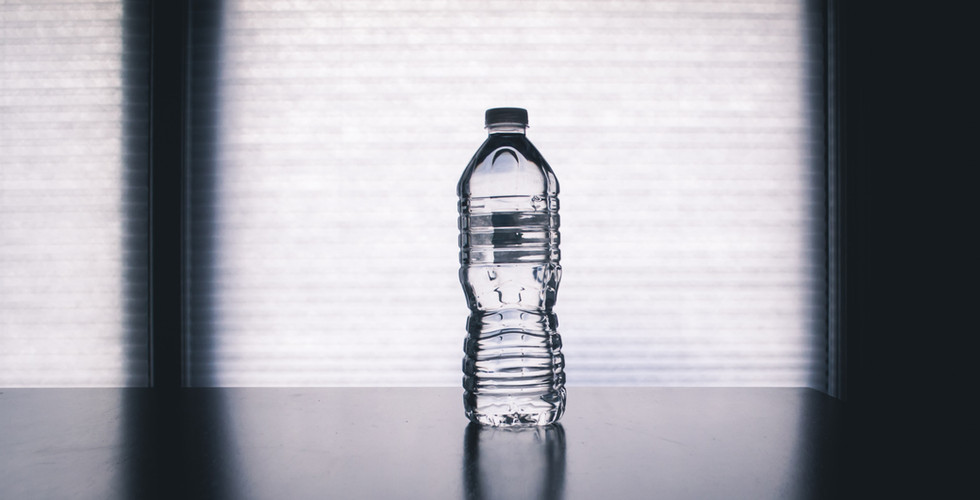- Jun 5, 2020
Updated: Jun 6, 2020
Every athlete is always looking for ways to improve their performance. No joke, I constantly looked for ways to improve when I was playing professionally and still look for ways even though my workouts are maxing out at one hour and consist of a spin bike (maybe a treadmill) and a few free weights. Also, as I and many other people that I know search for performance improvement methods, the options often come with a hefty price tag. BUT high ho cheerio, I'm here to tell you that performance boosters don’t have to be expensive to work. I have put together this sweet little list of food and non-food performance boosters that are easy on the pockets. Download the handy chart version for free HERE.
Do you use any of these? What are your thoughts?
Budget Boosters
Carbs! Carbohydrates come in many shapes and sizes! Beneficially, though diverse in profile, they help with energy levels and endurance by providing glucose and fructose for the body to use as fuel or store as glycogen. We also can't forget about how it can level up our focus since glucose is the brain's primary source of fuel!
Beets (eat em’ or juice em’) - Beetroots and other leafy greens are filled with nitrates which when absorbed is converted to nitric oxide. Nitric oxide can aid in muscular respiration, contractions, and recovery while adding an additional layer of anti-inflammatory support.
Tart Cherries (eat em’ or juice em’) - Similar to beetroots, tart cherries are high in nitrates. They also boast a loaded polyphenol profile, functional nutrients that aid in inflammation and overall wellness. Extra bonus: tart cherries are high in the nutrient serotonin aids in the production of melatonin in the body for some sweet bedtime z's!
Nuts and seeds are high in omega 3's, 6's, & 9's. In the right ratio, omegas are excellent for heart and brain health as well as inflammation.
Turmeric + black pepper - Turmeric contains curcumin, a nutrient found to be helpful in mitigating inflammation and delayed onset muscle soreness. Some may see added absorption when pairing with black pepper!
Salmon - Salmon contains a trifecta of protein, omega-3s & vitamin D! Aiding in heart & brain health, inflammation, bone health, and hormone production - there is no reason to not LOVE this food.
Kale along with other fruits and vegetables contains polyphenols, more specifically, quercetin a flavanol antioxidant that aids in inflammation reduction!
Sodium Bicarbonate (Baking Soda) can be used as a buffer to preserve pH and allow our muscles to handle a higher workload and essentially increase strength.
Coffee - Just a bit of caffeine has the potential to increase alertness, endurance, and power performance. Though dry powder forms may be absorbed better, a cup of joe can still provide similar benefits. Be careful, though caffeine itself is not prohibited in sport, too much detected in the system can raise a red flag and lead to disqualification, per the World Anti-Doping Administration. So stick to 1-2 cups to be safe!
Yogurt and kefir both contain naturally present probiotics strains that may help to decreases GI distress symptoms (such as cramping & diarrhea), and provide immune support!
Fluids - The most simple way to enhance performance is by staying hydrated. Utilizing water and electrolyte drinks during exercise aids in muscle contraction regulation, electrolyte replenishment, cognitive function, and reduction of post-workout soreness.
Milk + Milk Powder contains casein and whey protein which aids in muscle growth, maintenance, and repair.
Eggs + Lean Animal Proteins (includes fish) - contain leucine and creatine, naturally present nutrients that aid in muscle building and repair and essentially helping to increase workload capacity
Beans + lentils contain isoleucine, leucine & arginine, amino acids (in particularly arginine) that aid in energy production, muscle maintenance, and muscle growth.
Download the handy chart version for free HERE.
Sources:
References
Barrett, E. C., Mcburney, M. I., & Ciappio, E. D. (2014). ω-3 Fatty Acid Supplementation as a Potential Therapeutic Aid for the Recovery from Mild Traumatic Brain Injury/Concussion. Advances in Nutrition,5(3), 268-277. doi:10.3945/an.113.005280
Close, G., Hamilton, D., Philp, A., Burke, L., & Morton, J. (2016). New strategies in sport nutrition to increase exercise performance. Free Radical Biology and Medicine,98, 144-158. doi:10.1016/j.freeradbiomed.2016.01.016
Gammone, M., Riccioni, G., Parrinello, G., & D’Orazio, N. (2018). Omega-3 Polyunsaturated Fatty Acids: Benefits and Endpoints in Sport. Nutrients,11(1), 46. doi:10.3390/nu11010046
Goldstein, Erica R, et al. “International Society of Sports Nutrition Position Stand: Caffeine and Performance.” Journal of the International Society of Sports Nutrition, vol. 7, no. 1, 2010, p. 5., doi:10.1186/1550-2783-7-5.
Hoffman, J. R., Gepner, Y., Hoffman, M. W., Zelicha, H., Shapira, S., & Ostfeld, I. (2018). Effect of High-Dose, Short-Duration β-Alanine Supplementation on Circulating IL-10 Concentrations During Intense Military Training. Journal of Strength and Conditioning Research,32(10), 2978-2981. doi:10.1519/jsc.0000000000002625
Jeukendrup, A. E. (2017). Periodized Nutrition for Athletes. Sports Medicine,47(S1), 51-63. doi:10.1007/s40279-017-0694-2
Karpinski, C., & Rosenbloom, C. (2017). Sports nutrition: A handbook for professionals: Sports, cardiovascular, and wellness nutrition dietetics practice group (6th ed.). Chicago: Academy of Nutrition and Dietetics.
Maughan, R. J., Burke, L. M., Dvorak, J., Larson-Meyer, D. E., Peeling, P., Phillips, S. M., . . . Engebretsen, L. (2018). IOC consensus statement: Dietary supplements and the high-performance athlete. British Journal of Sports Medicine,52(7), 439-455. doi:10.1136/bjsports-2018-099027
Office of Dietary Supplements (ODS). (2017, June 30). Retrieved April 15, 2019, from https://ods.od.nih.gov/
Peeling, P., Binnie, M. J., Goods, P. S., Sim, M., & Burke, L. M. (2018). Evidence-Based Supplements for the Enhancement of Athletic Performance. International Journal of Sport Nutrition and Exercise Metabolism,28(2), 178-187. doi:10.1123/ijsnem.2017-0343
Philpott, J. D., Witard, O. C., & Galloway, S. D. (2018). Applications of omega-3 polyunsaturated fatty acid supplementation for sport performance. Research in Sports Medicine,27(2), 219-237. doi:10.1080/15438627.2018.1550401
Rawson, E. S., Miles, M. P., & Larson-Meyer, D. E. (2018). Dietary Supplements for Health, Adaptation, and Recovery in Athletes. International Journal of Sport Nutrition and Exercise Metabolism,28(2), 188-199. doi:10.1123/ijsnem.2017-0340
Saunders, B., Elliott-Sale, K., Artioli, G. G., Swinton, P. A., Dolan, E., Roschel, H., . . . Gualano, B. (2016). β-alanine supplementation to improve exercise capacity and performance: A systematic review and meta-analysis. British Journal of Sports Medicine,51(8), 658-669. doi:10.1136/bjsports-2016-096396
Thomas, D. T., Erdman, K. A., & Burke, L. M. (2016). Position of the Academy of Nutrition and Dietetics, Dietitians of Canada, and the American College of Sports Medicine: Nutrition and Athletic Performance. Journal of the Academy of Nutrition and Dietetics,116(3), 501-528. doi:10.1016/j.jand.2015.12.006
Tsuchiya, Y., Yanagimoto, K., Ueda, H., & Ochi, E. (2019). Supplementation of eicosapentaenoic acid-rich fish oil attenuates muscle stiffness after eccentric contractions of human elbow flexors. Journal of the International Society of Sports Nutrition,16(1). doi:10.1186/s12970-019-0283-x





































